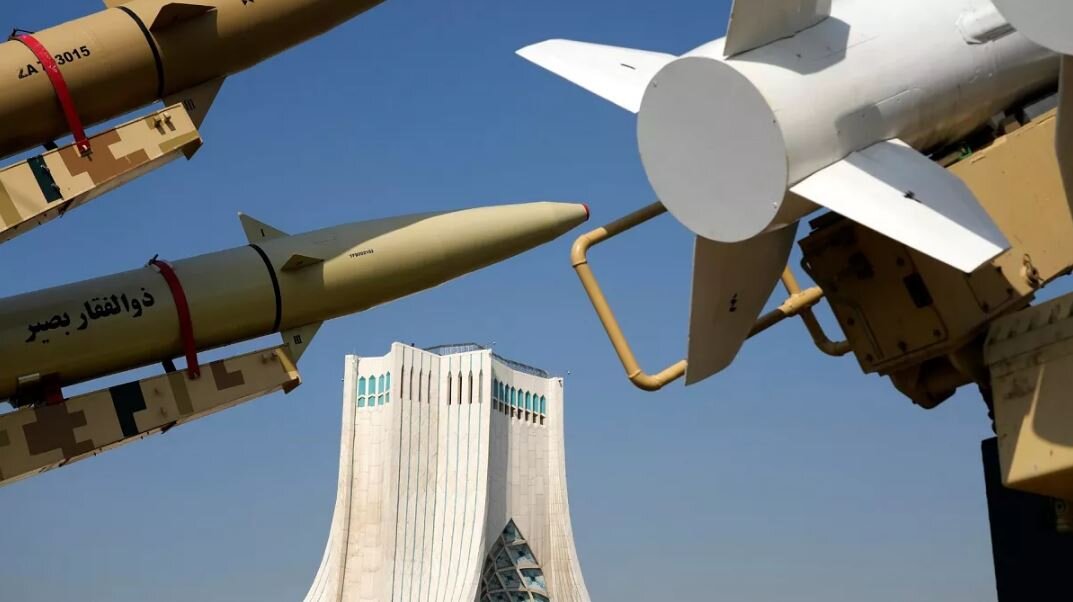Officials say Iran will respond to Israel’s attack as public demand for retaliation grows

TEHRAN – Multiple Iranian officials have asserted Iran's right to respond to Israel’s Saturday attack on the West Asian country’s soil, as the nation mourns the loss of four soldiers who died in fending off the regime’s airstrikes.
Hamzeh Jahandideh, Mohammad Mehdi Shahrokhifar, Sajad Mansour, and Mehdi Naqavi were martyred as Israel attacked defense radars located in the provinces of Khuzestan, Illam, and Tehran. The four individuals were part of the Iranian Army’s air defense forces, who managed to prevent dozens of Israeli fighter jets from entering Iran’s airspace in the early hours of Saturday. The war jets used long-rage ballistic missiles equipped with cluster warheads to shoot at their intended targets inside Iran.
In a post on X, Iranian Foreign Minister Abbas Araghchi said Tehran reserves the right to respond to Israel’s latest aggression. “We strongly condemn the criminal attack on Iranian military centers as a violation of international law and the UN Charter. Four of our Army heroes sacrificed their lives in defeating this reckless and cowardly assault,” he said before asking the international community to unite against “this common threat to international peace and security.”
In his subsequent exchanges with his Syrian, Qatari, and Egyptian counterparts, Araghchi added that Iran will not hesitate to give a decisive and appropriate response to aggression against its territorial integrity and security “in due course”.
Iran’s Parliament Speaker Mohammad Baqer Qalibaf was in the same mind as Araghchi as he addressed a parliamentary session behind closed doors on Sunday. “The Islamic Republic will definitely react to the Zionist regime’s most recent act of aggression,” Qalibaf said during a speech at the beginning of the session which was made public. He said Israel’s Saturday attack was done out of the regime’s “passivity” but that doesn’t mean Tehran will not make Israelis pay for violating Iran’s territorial integrity and national sovereignty. “The U.S. as the main sponsor of the Zionist regime, has to push for an end to the massacre of people in Gaza and Lebanon and restrain Israel from waging wars,” the official stated.
Iranian President Masoud Pezeshkian also said during a cabinet meeting a day after the attacks that Iran is not "looking for war" but will certainly respond to Israel's latest aggression.
Grief and anger spark calls for retaliation
Iran’s successful defense against the Israeli attack seems to have instilled a sense of confidence among the Iranian people – a spirit reflected in a surge on the stock market hours after the failed aggression.
Nevertheless, for a nation that hadn't experienced the loss of life from foreign airstrikes since the end of the Iran-Iraq war in the 1980s, Saturday's attack has also ignited a sense of outrage and a determination to ensure such an event never happens again.
"This is unacceptable," declared a 54-year-old Tehran resident. "The fact that we heard those explosions, that we were all aware of Israel's violation of our territorial integrity, means there must be a response. A response that will ensure they never dare to repeat this mistake.”
The female citizen talking to Iranian media said the sounds that shook Tehran in the early hours of Saturday brought back memories of Saddam Hussein's airstrikes. "We lost countless young lives defending our country then. We cannot allow the peace and security they sacrificed for to be threatened."
People from all sectors of the Iranian society have been echoing the same sentiments. A lawmaker representing Iran’s Jewish community urged the country’s Armed Forces on Sunday to deliver a swift response to Israel.
“The ability of the Zionist army to penetrate into Iran's territory has been very weak, and the protection of the country's airspace by the defense system of our country was very effective and excellent,” Homayoun Sameyah Najaf Abadi stated. "Still, we support Iran's legitimate defense and demand Iran's decisive response to the aggressive act of the Zionist regime at the right time."
Israel’s attack against Iran came 25 days after Tehran launched a barrage of 200 ballistic missiles at the occupied territories, successfully targeting several of the regime’s military and intelligence sites. The operation dubbed “True Promise II” was a response to a series of Israeli terrorist attacks martyring a number of high-ranking Resistance figures.
Leave a Comment